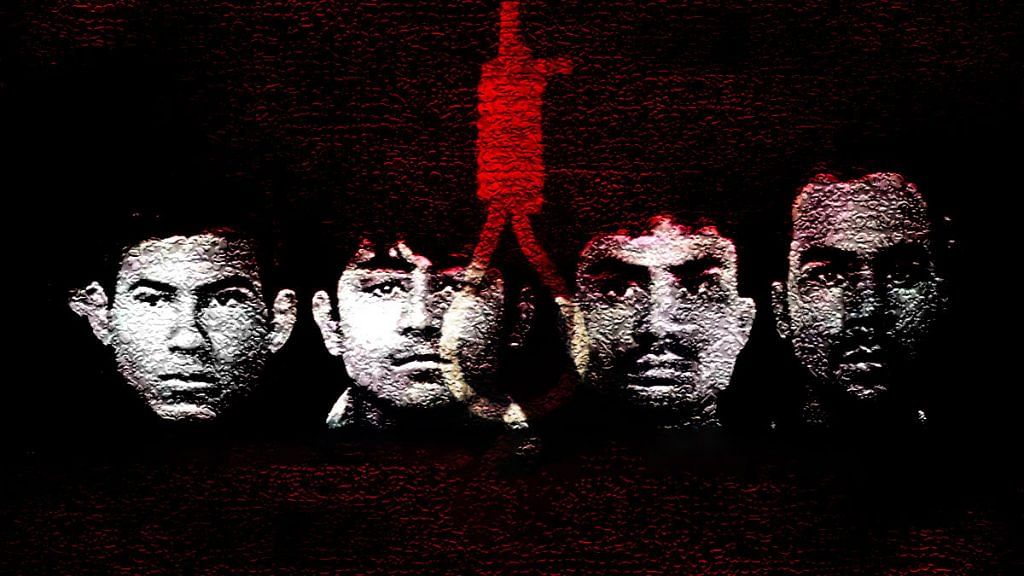A lot has been said and written about the “delay” in hanging the four convicts in the 2012 Delhi gang-rape and murder case. The woman’s mother has also criticised “opposing forces” for the delay in execution. There have also been questions over the number of mercy petitions that the four convicts have been able to file, and over President Ram Nath Kovind’s “failure” to dispose them in a time-bound manner.
But the facts related to the hanging of convicts and the option of filing a mercy petition that is available to them have been largely overlooked.
Even though the President has rejected the mercy petitions in this case and the Supreme Court has dismissed the review pleas, it is no one’s argument that the convicts on death row were only exercising their right to seek clemency guaranteed under the law.
And decisions on such petitions take time, since the President is guided by the advice of the union council of ministers.
In fact, going by past precedents, the chances of all four convicts being hanged on 1 February, the scheduled date, are slim. To begin with, under settled law as well as Delhi Jail Manual as per the Delhi Prisons Act, 2000, and the Delhi Prisons Rules, they will need to be given at least 14 days before hanging.
Also read: SC wants lower courts to speed up rape trials, but 26% judge vacancies make it difficult
How a mercy plea progresses
Article 72 of the Constitution grants the President the power to pardon, suspend, remit or commute a convict’s death sentence. The President, upon receiving a mercy plea, seeks the opinion of the Union Ministry of Home Affairs (MHA), which, as per rules of business, is considered as the opinion of the council of ministers.
But before making a decision, the MHA is duty-bound to seek the views of the state authorities, including the jail staff, as well as obtain guidance on whether the mercy plea has any legal basis.
Many of those clamouring for the immediate hanging of the four convicts forget that it isn’t only the prisoners on death row who can file a mercy plea – anyone, from family members to foreign nationals to organisations not connected with the matter, can file a petition with the President’s Secretariat or the MHA on the prisoner’s behalf. And, the MHA must examine each mercy petition afresh and submit its recommendation to the President. This is where the delay often happens.
There are instances where scheduled hangings had to be postponed after fresh mercy petitions landed on the desk of the President.
Take the case of Afzal Guru. Convicted in 2004 for his role in the 2001 Parliament attack, Guru’s final appeal in the Supreme Court was rejected in August 2005 and the review petition in September that year. But he was hanged only on 9 February 2013 – almost eight years later.
In the case of the four convicts in the 2012 Delhi gang-rape and murder case, the Supreme Court had rejected their appeal against the death sentence only in 2017.
Then there are times when the President goes beyond the established procedure, which can also cause a delay. Then-President Pratibha Patil chose not to accept the MHA’s advice, opting instead to push the UPA government to change its recommendation. She held the belief that her religious teachings didn’t allow her to turn down a mercy plea. There have also been cases where Presidents have chosen to sit on mercy pleas, refusing to either reject or accept them.
Also read: Not just govt, judiciary also to blame for mounting judge vacancies in high courts
What does the manual say?
As per the Delhi Jail Manual, the execution of the convict has to be mandatorily postponed until the President has decided on all mercy petitions.
For cases like the 2012 Delhi gang-rape and murder, in which there are four convicts on death row, the Jail Manual says if there is a mercy plea pending for even one convict, then the execution has to be mandatorily stayed for all the convicts
Regarding the timing of filing the mercy plea, the Delhi Jail Manual says that a mercy petition by the convict can be filed within seven days of the sentence being announced by the Supreme Court. However, there is no restriction on filing the mercy plea beyond the seven-day period.
Should there be a period of gap between the rejection of a mercy petition and the execution of the convict? Yes, it’s not just the Delhi Jail Manual, but even the Supreme Court is very clear on this.
In the Shatrughan Chauhan & Another versus Union Of India, the Supreme Court, in its landmark judgment on 21 January 2014, held that there must be a minimum 14-day notice given to a convict on death row before the execution.
“Some prison manuals do not provide for any minimum period between the rejection of the mercy petition being communicated to the prisoner and his family and the scheduled date of execution. Some prison manuals have a minimum period of 1 day, others have a minimum period of 14 days. It is necessary that a minimum period of 14 days be stipulated between the receipt of communication of the rejection of the mercy petition and the scheduled date of execution,” the three-judge bench had said.
This 14-day period, the bench had added, would allow the “prisoner to prepare himself mentally for execution, to make his peace with god, prepare his will and settle other earthly affairs”, besides giving him time to “have a last and final meeting with his family members”.
The author is a senior journalist. Views are personal.
